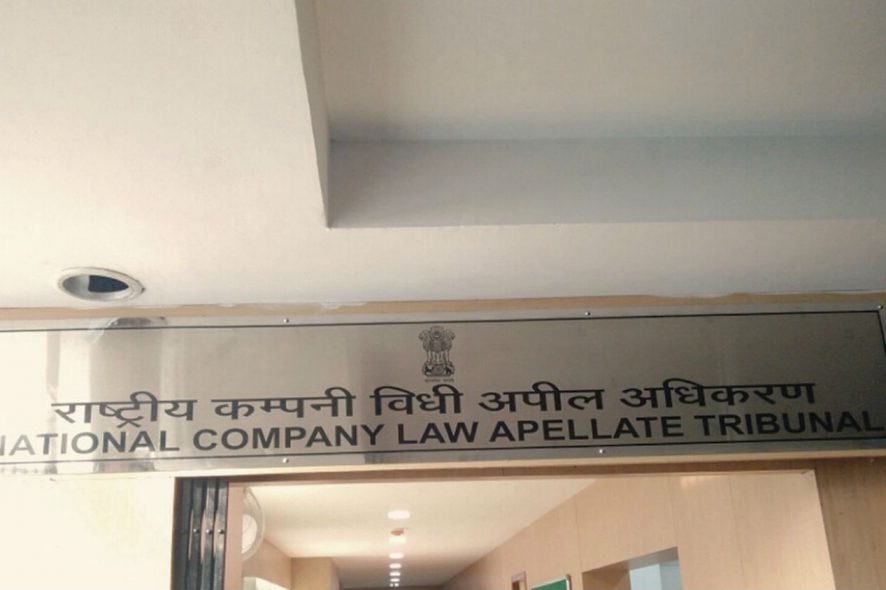The National Company Law Appellate Tribunal (hereinafter “Nclat”) recently in Shah Bros. Ispat1, approved parallel continuation of proceedings under the Negotiable Instruments Act, 1881 (hereinafter “the NI Act”) against a company subjected to moratorium while undergoing resolution process under the Insolvency and Bankruptcy Code, 2016 (hereinafter “the IB Code”). The decision of Nclat raises multiple issues ranging from an apparent conflict between the NI Act and the IB Code to practical impossibilities in allowing both the proceedings to continue simultaneously. The object of the article is to discuss the legal problems that may arise in light of the decision in Shah Bros. Ispat1, and why the decision needs to be revisited in light of the settled law.
DECISION IN SHAH BROS. ISPAT2
The appellant creditors before Nclat had initiated two separate proceedings under Section 138 of the NI Act, one prior to the admission of insolvency proceedings under the IB Code and one post the admission of insolvency proceedings under the IB Code. The respondent debtor contended that once a moratorium is imposed under Section 14(1)2 of the IB Code, proceedings under the NI Act would have to be halted. Nclat categorically rejected the submission and held:
6. … as Section 138 is a penal provision, which empowers the court of competent jurisdiction to pass order of imprisonment or fine, [and] cannot be held to be proceeding or any judgment or decree of money claim. Imposition of fine cannot held to be a money claim or recovery against the Corporate Debtor nor order of imprisonment, if passed by the court of competent jurisdiction on the Directors, they cannot come within the purview of Section 14. Infact no criminal proceeding is covered under Section 14 of I&B Code.3
The major precise for allowing parallel continuation of proceedings was that the moratorium does not cover criminal proceedings, but it is submitted that while this position might be true, proceedings under the NI Act cannot be classified as criminal proceedings in strict sense. The decision of Nclat raises multiple issues, namely:
(a) whether proceedings under the NI Act are purely criminal in nature,
(b) whether the accused company’s right to compose (and put an end to) a cheque bounce case is circumvented during the imposition of moratorium, and
(c) whether continuation of parallel proceedings under the NI Act and the IB Code conflict with the object as well as the procedure of the resolution process and if whether it affects the rights of other creditors.
For the purposes of the argument, the article does not distinguish between the NI proceedings initiated prior to the initiation of proceedings under the IB Code and the NI proceedings initiated post the initiation of proceedings under the IB Code since the reasoning of Nclat permeates both the scenarios.
† Advocate, Punjab and Haryana High Court, Chandigarh, BA LLB (Hons.) and Executive Member, Bar Association of Punjab and Haryana High Court. Graduated in 2016 from National Law University, Delhi. Ph. No: +918447586173. Email Address mittalakaant@gmail.com, akaant.mittal.alumni@nludelhi.ac.in.
** This article was first published in Supreme Court Cases (2020) 1 SCC J-23. It has been reproduced with the kind permission of Eastern Book Company
[1] Shah Bros. Ispat (P) Ltd. v. P. Mohanraj, 2018 SCC OnLine NCLAT 415.
[2] Insolvency and Bankruptcy Code 2016, Section 14(1) states:
14. Moratorium.—(1) Subject to provisions of sub-sections (2) and (3), on the insolvency commencement date, the adjudicating authority shall by order declare moratorium for prohibiting all of the following, namely:
(a) the institution of suits or continuation of pending suits or proceedings against the corporate debtor including execution of any judgment, decree or order in any court of law, tribunal, arbitration panel or other authority;
(emphasis supplied)
[3] Shah Bros. Ispat (P) Ltd., 2018 SCC OnLine NCLAT 415, para 6.




Very insightful !